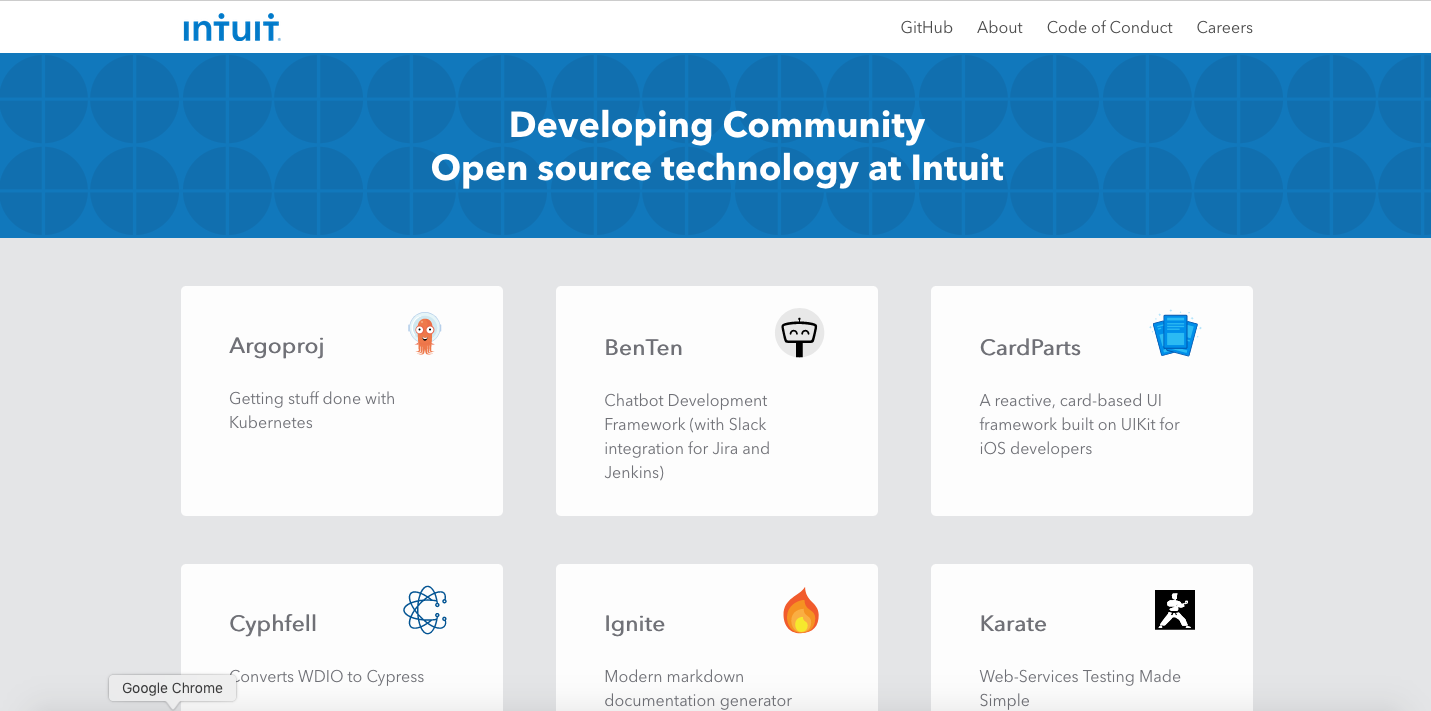
After looking through 20 separate open source pages for leading API providers, here are the building blocks of an open source page I’ve identified.
Overview:
- FMA - Tag Line - Simple phrase describing open source at an organization.
- Mission / Purpose - Stating the purpose of doing open source.
- Influential Quotes - Sharing quotes with influential stakeholders.
- Why Open Source? - Explaining the reason why an organization is doing it.
- Process -- Google has robust overview of how they do open source.
Core:
- Projects - Open source projects owned by the organization.
- 3rd Party - External open source project being used.
- Categories - Breaking projects down by simple categories.
Communication:
- Blog - Having a blog or channel dedicated the open source efforts.
- GitHub - Using Github to host page, projects, and communicate.
- Twitter - Using Twitter as a social media communication channel.
Support:
- Forum - Providing a forum for supporting open source efforts.
- Feedback - Establishing a feedback form for users take advantage of.
- Contributing - Providing guidelines for how the community can contribute.
- Talk to Expert - Offer up a way fr the community to talk with experts.
Discovery
- Search - Ensuring there is a way to search across open source offerings.
- Stars - Exposing the stars for projects derived from GitHub.
- Forks - Exposing the number of times a projects has been forked on GitHub.
Innovation:
- Incubator - Providing details on a project incubation program.
- Research - Sharing research involved within projects being operated.
- Podcast - Offering a regular podcast series covering open source.
Talent:
- Careers - Providing a listing of available jobs involved with organization.
- Team - Showcasing the team behind the open source offering.
- Apply - Publish a form that users can submit to apply for jobs.
Legal:
- Terms of Service - Publishing terms of service governing open source.
- Privacy Policy - Publishing a privacy policy governing open source.
- Code of Conduct - Publishing a code of conduct governing open source.
That provides a pretty robust list of the elements any organization can consider when publishing their own open source page supporting the platform, and showcasing the contributions being made back to an organization’s own community, as well as the communities of existing open source offerings. Helping improve the brand image for an organization, and encourage more participation in helping move forward individual open source projects.
I’d recommend companies showcase the open source projects they are putting to work in their platform, even if they aren’t moving forward their own projects. The open source tools you depend on will appreciate the attention, and it will help you think about the bigger picture when it comes to the tooling you depend on. If you do have your own open source projects, it helps elevate the conversation to aggregate all of your projects onto a single page, and link prominently from your website. There are numerous benefits to having an organized open source effort, but the top two reasons I’m seeing are to help improve the overall brand image, and for talent acquisition—two things that almost every API provider will benefit from.


